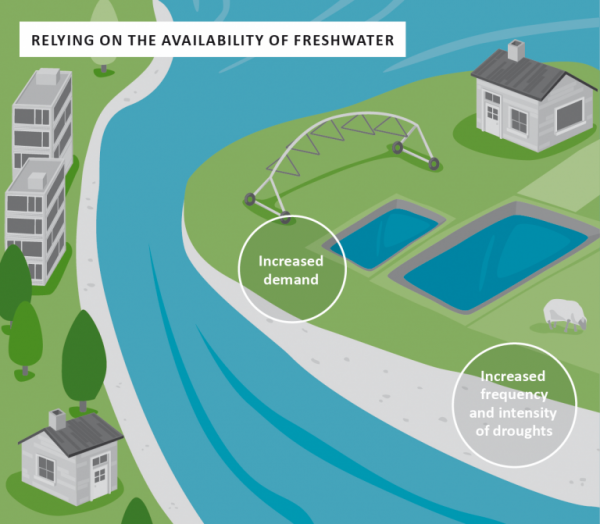Freshwater resources
New Zealanders rely on the availability of freshwater. Increased pressure on water resources is almost certain in future.
Decreasing annual average rainfall in eastern and northern regions of both main islands, plus higher temperatures, are projected to increase the frequency and intensity of droughts and the risk of wild fire. At the same time, urban expansion and increased demand for water from agriculture will result in increased competition for freshwater resources.

Key findings
The use of freshwater is already a controversial issue in New Zealand, both on allocation and quality. There is competition over use of water for safe urban supply, storage dams and irrigation, hydropower schemes, native ecosystem maintenance, and cultural and recreational purposes.
There will be increased pressure on water resources due to both climate change and economic development. Decreasing rainfall in the east and north, plus higher temperatures, will increase the frequency and intensity of droughts. At the same time, urban expansion and increased demand for water from agriculture will result in increased competition for freshwater resources. The increased pressure on water resources and increased demand for water resources also puts our freshwater ecosystems at risk.
Fire danger is projected to increase in many parts of New Zealand due to changing rainfall and higher summer temperatures. The number of days with very high and extreme fire weather is expected to increase, with greatest changes in the east and north of both islands.
Factoring climate change into strategic planning for future water supply and demand is critical to ensure a sustainable water use in New Zealand.
